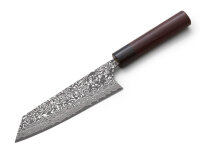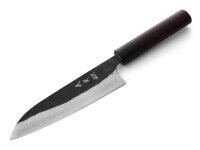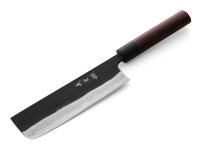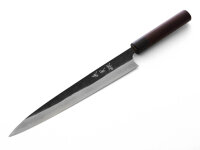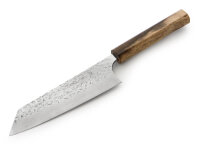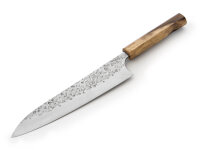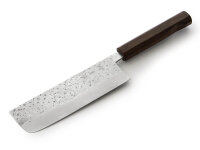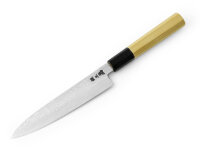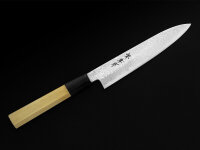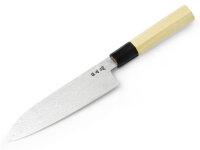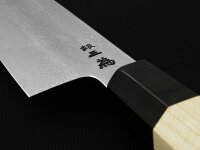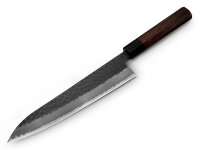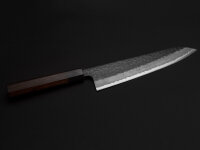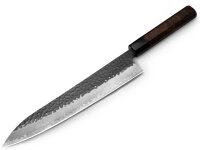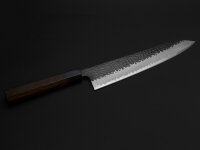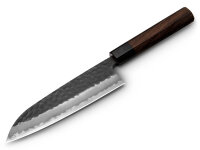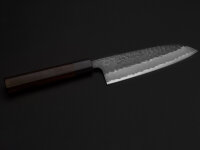The Specialty of
Damascus knivesHand-forged knives from Japan
INTRODUCTION TO THE WORLD OF HAND-FORGED KNIVES
In the demanding kitchen, where precision and quality are paramount, hand-forged knives are the centerpiece of every preparation. These kitchen knives, crafted in the forges of Japan, are more than just simple kitchen tools; they are the result of centuries-old craftsmanship, expressed in every blade, every handle, and every layer of steel. The Japanese knives found in the ORYOKI online shop range are 98 percent hand-forged knives sourced directly from Japanese manufacturers. Among them are chef's knives from renowned Japanese master smiths such as Yoshimi Kato from Takefu, Itsuo Doi - one of the "Dento-Kogei-shi" award winners - and Suogo Yamatsuka, who specializes in processing Ginsan Silver-3 steel. Hand-forged knives from ORYOKI offer not only unparalleled sharpness and durability but also an incomparable balance felt in the hand of every chef. Whether a professional or enthusiastic home cook, the quality and uniqueness of these knives make every cut an experience.
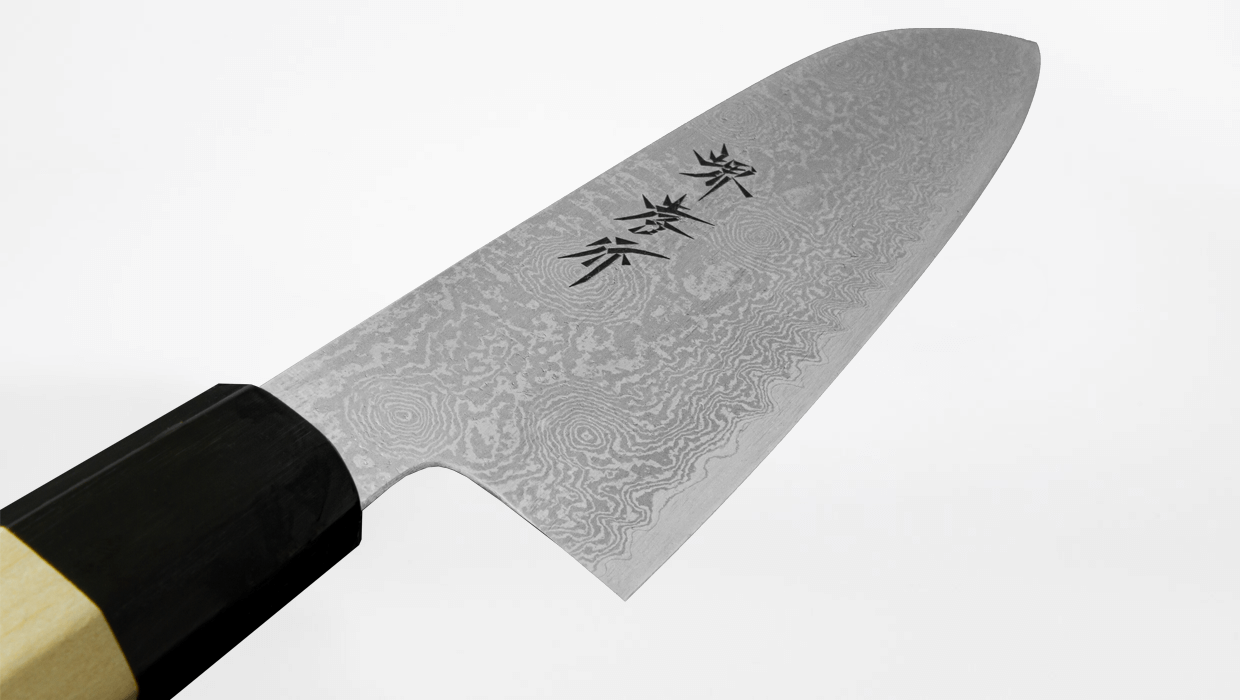
The Specialty of Damascus Knives
The rounded shape, reminiscent of a Tetsubin kettle, gently draws out the flavors.
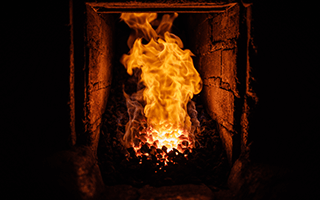
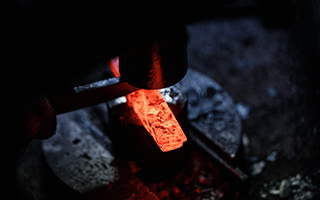
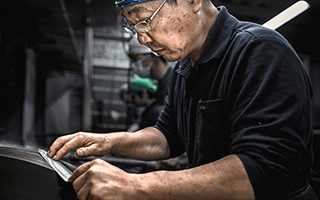
While hand-forged knives are already known for their quality and sharpness, Damascus knives hold a special position in this regard. Damascus, a material created through the folding and forging of different types of steel – layer by layer – not only gives these chef's knives an impressive appearance but also exceptional hardness and elasticity. The unique grain of Damascus steel makes each Damascus knife a masterpiece that combines functionality and aesthetics in perfection. At ORYOKI, you'll find Damascus knives in various shapes, known in Japan as Santoku, Nakiri, Gyuto, Yanagiba, Bunka, and Deba, among others. These are specifically designed to meet the demands of preparing fish, meat, and vegetables, providing every chef with the best support in their kitchen.
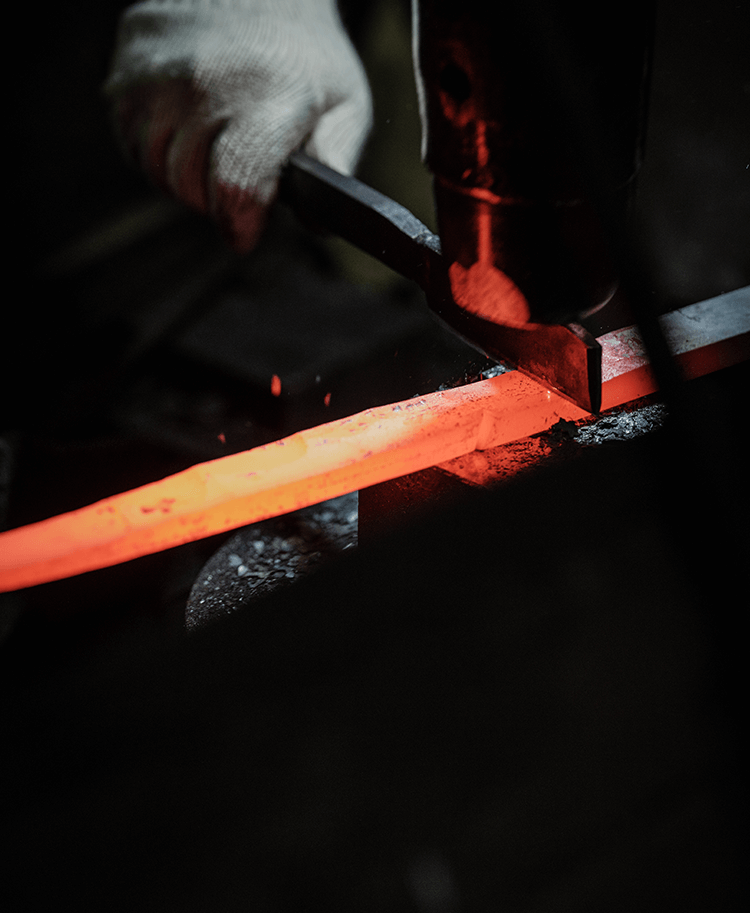
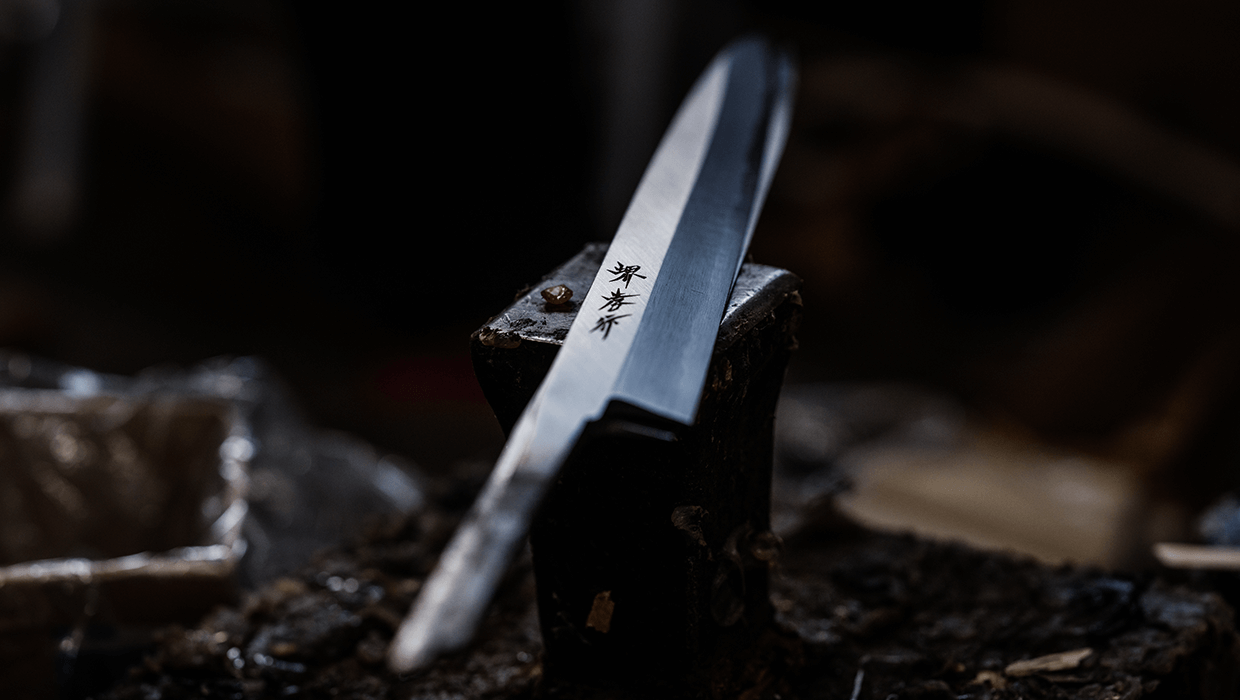

The art of the hand-forged:
From steel to bladeThe Art of Hand-Forged:
From Steel to Blade
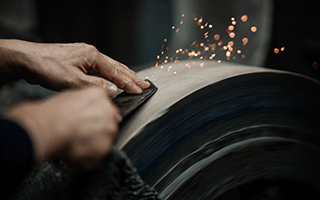
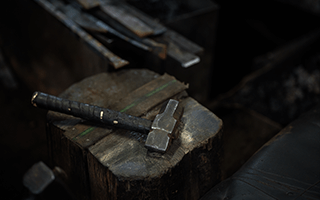
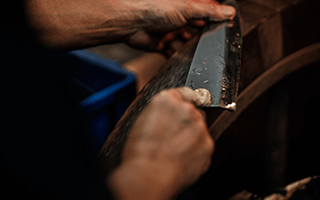
The process that transforms a piece of steel into a sharp, durable, and well-balanced blade is as complex as it is fascinating. Hand-forged knives, and especially hand-forged chef's knives, undergo numerous steps, from heating the steel to careful folding and forging, to the final grinding and polishing. This meticulous craftsmanship ensures that each kitchen knife possesses optimal sharpness and a blade that meets even the highest standards. The dedication and skill of the knife smiths at ORYOKI ensure that each knife is a masterpiece.
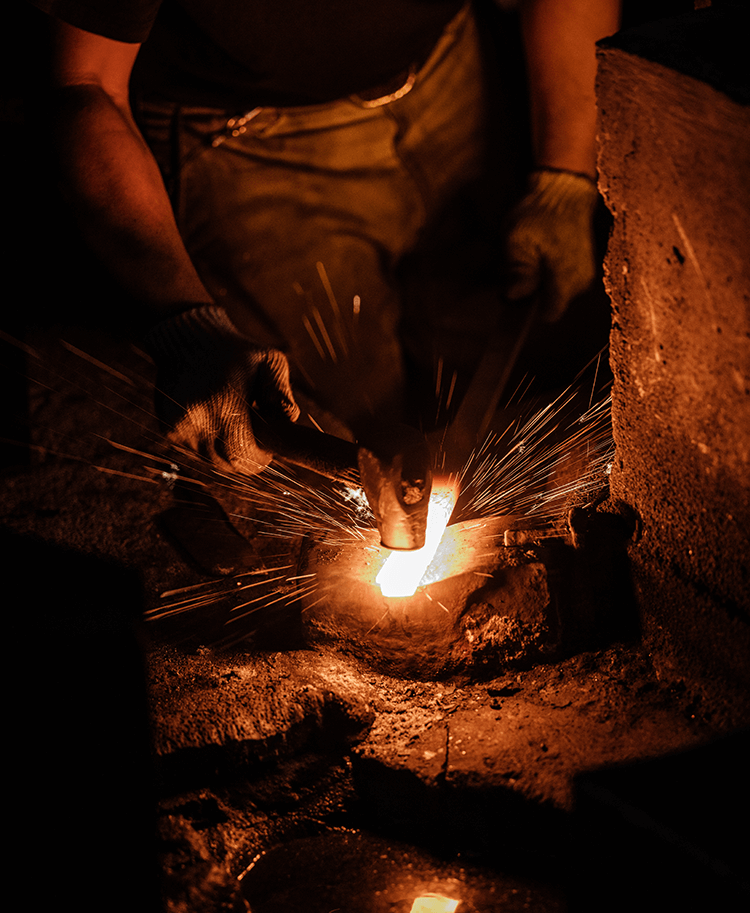
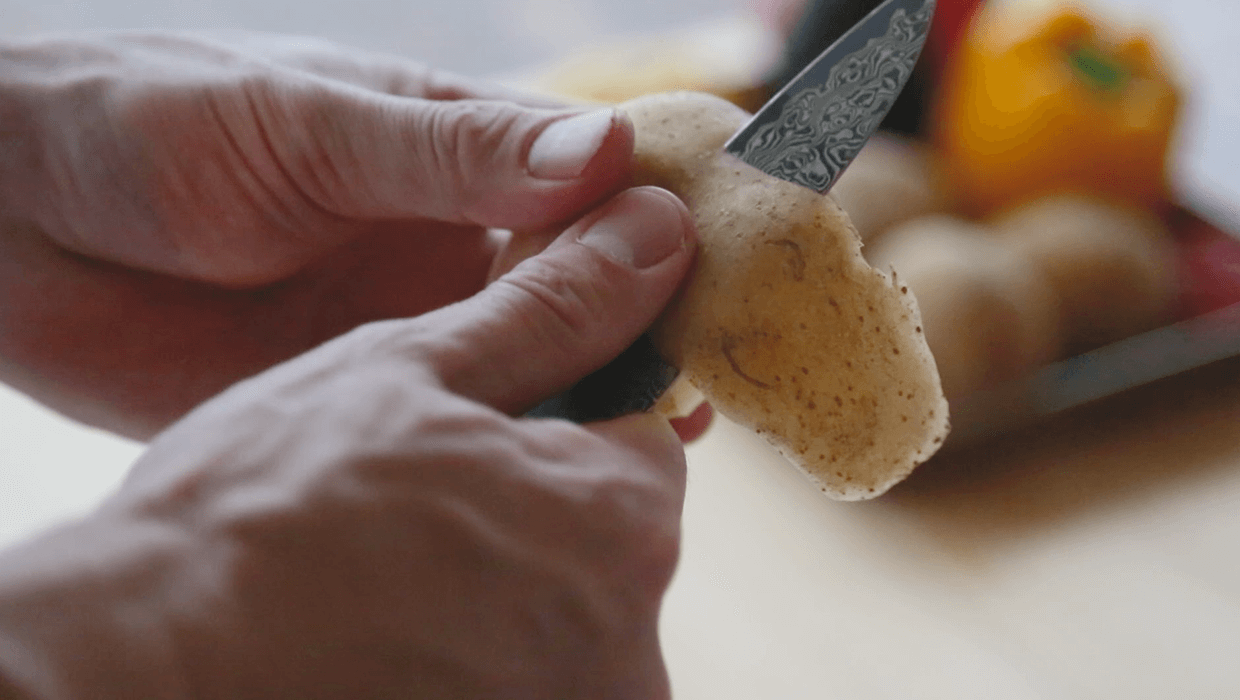
Yoshimi Kato - by the hand of a master Forged
Handle and Balance: The Extension of the Hand
Another crucial feature of hand-forged knives is the handle. Designed to be a natural extension of the chef's hand, the handle plays an essential role in the safety and control of the knife. At ORYOKI, we ensure that the handle of each kitchen knife is not only comfortable and ergonomic but also made from materials that combine durability and aesthetics. A well-balanced chef's knife, with the blade and handle in perfect harmony, allows for precise cuts and fatigue-free handling, even with prolonged use.
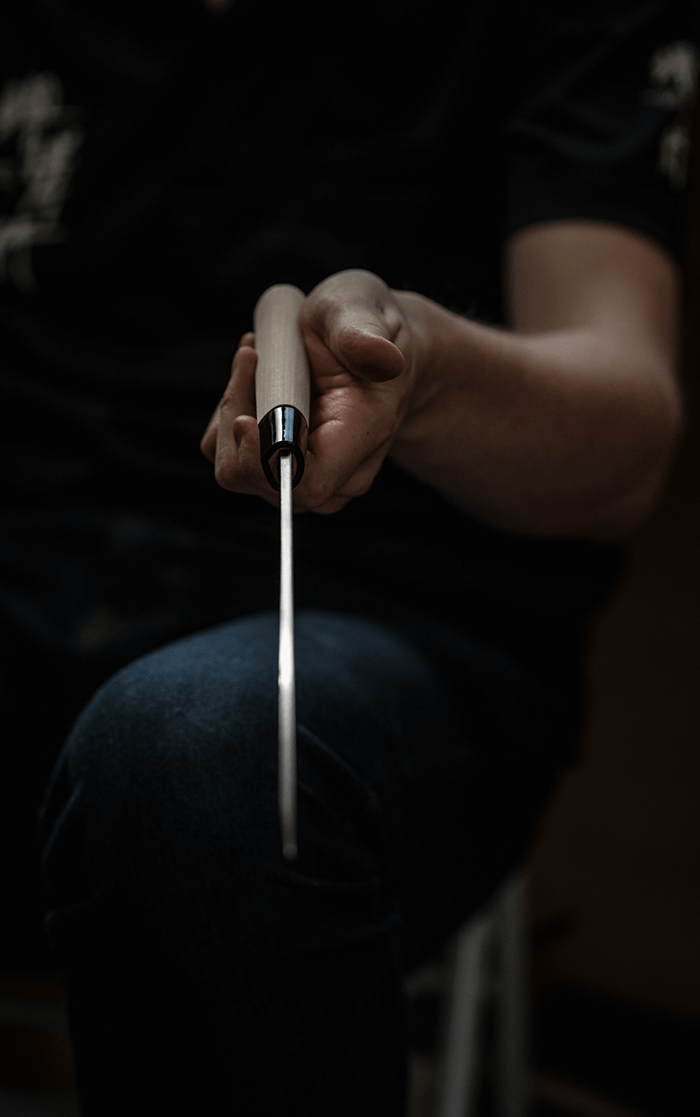
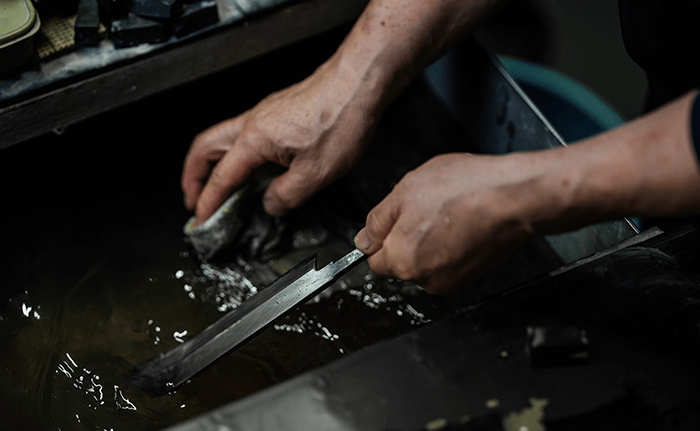
We select the handles
with great care and in consultation
with our Japanese master smiths
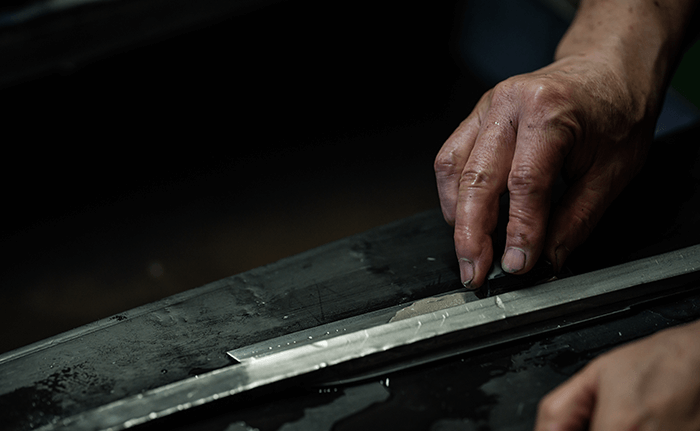
Care and Preservation of Your Hand-Forged Masterpieces
Lived Appreciation
The care of hand-forged Damascus knives, as well as all high-quality Japanese knives, is essential to preserve their beauty and functionality over the years. In addition to Damascus knives, there are Japanese knives made from non-stainless carbon steels such as Aogami or Shirogami. These steels are known for their extraordinary sharpness and edge retention but require special attention in maintenance. After each use, these non-stainless chef's knives should be carefully wiped with a soft cloth to prevent rust formation. It's important to occasionally apply some knife oil to protect the blade from rust and maintain the handle. In our product data for the knife blades, we inform you whether the steel used is "rust-resistant" or "non-stainless."
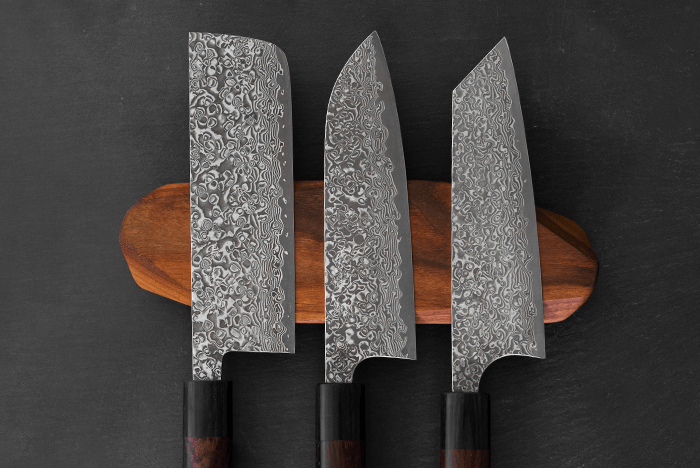
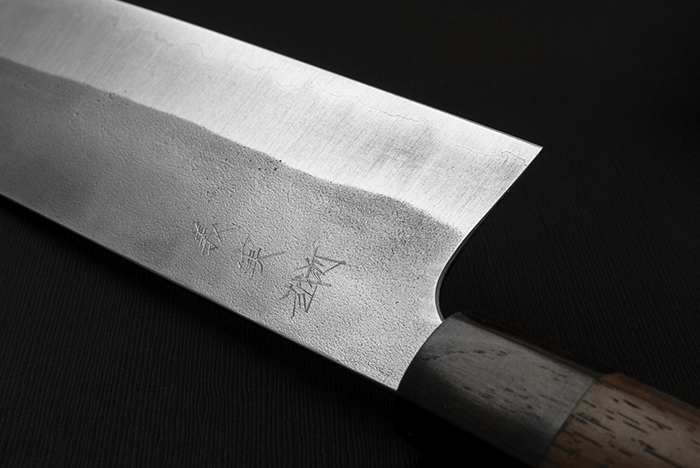
Conscious Utilization
Regardless of the material, it is advisable to hand wash all hand-forged knives after each use and carefully dry them to prevent corrosion and stains. Regular maintenance with a special care oil for the handle and occasional sharpening of the blade ensure that your knife always delivers the best possible performance. A well-maintained knife, whether made of Damascus steel or high-quality carbon steel, is not only an indispensable tool in the kitchen but can also be an heirloom passed down from generation to generation. Investing in proper care and maintenance ensures the longevity and joy of cooking with these exquisite knives.
Conclusion: A Tribute to Tradition and Innovation
The hand-forged knives and Damascus knives from ORYOKI are more than just kitchen tools. They are a tribute to centuries-old Japanese blacksmithing, finding new meaning in the modern kitchen. Each knife we offer is a testament to the dedication and skill of master smiths who combine tradition and innovation to create products of unparalleled quality and beauty. Explore a range at ORYOKI that allows every cook to pursue their passion for culinary arts with the finest tools.

